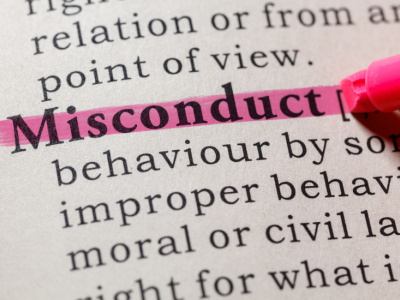Here’s an urban myth: An employee who opposes potential employer discrimination must be treated with kid gloves after complaining. The U.S. 5th Circuit Court of Appeals (whose rulings cover Texas employers) recently stated that this proposition is, indeed, a myth.
Oppose, Oppose, Oppose
Emilio Lira worked as a financial advisor for Edward Jones. Between November 2014 and November 2016, he complained that while on the job, he was the victim of race and national origin discrimination.
His complaints culminated in a discrimination lawsuit that was filed in late 2016. During the legal battle (which lasted almost three years) he remained employed with Edward Jones. After he lost his case in May 2019, however, he was fired.
Why Terminate?
Lira claimed he was fired in retaliation for filing a discrimination complaint. In response, the 5th Circuit essentially said, “Well, the complainants were too far removed in time from the termination to possibly have caused it.” In other words, since his complaints were about incidents that occurred between 2014 and 2016 and his termination was in 2019, they couldn’t be related.
And, oh, are you forgetting something? As a regulated financial institution, Edward Jones was required to collect information on claims filed against it. Lira was charged with reporting the outcome of his lawsuit (his loss) to the company, but he didn’t do so in a timely manner.
After the company’s second request for Lira to submit the outcome, he obliged. When he finally got around to it, though, he had to have the last word. He let loose with a written comment stating that the company officials were acting like white supremacists.
Five days later, he was terminated for the comment and for the late submission. He sued for retaliation and lost yet another lawsuit. Lira v. Edward Jones Investments (5th Cir. 2023)
Lessons Learned
Do you see how the desire to have the last word was Lira’s undoing? While this can happen with an employee, it could also happen to a supervisor or a company. Look, I know all too well how it feels to want to get in the last word, but as my mother often cautioned me as a child: “A moment’s pleasure sometimes leads to a lifetime of regret.”
During Lira’s case, the 5th Circuit mentioned another case in which the complaints weren’t made in a timely manner (similar to Lira’s case), the employee filed a lawsuit and lost (also similar to Lira’s case), but the supervisor kept talking to the employee about the complaints and the lost lawsuit (unlike Lira’s case)
When that employee was ultimately fired, the appeals court said that the repeated harping about the complaints was an indication that the employer was possibly mad at the employee for the lawsuit and fired him as a result. According to the 5th Circuit, because Edward Jones kept Lira employed during the lawsuit and didn’t continuously bring it up once it was over, his termination wasn’t related.
To paraphrase a travel commercial: What happens in the past, should stay in the past. Moreover, engaging in opposition to perceived discrimination and complaining about isn’t a “Get Out of Jail” card for an employee.
This situation reminds me of a favorite case of mine. An employee claimed that his employer discriminated against him because of his sex. He filed a lawsuit with Equal Employment Opportunity Commission (EEOC), and the employee and the employer agreed to go to a mediation conducted by the EEOC at its offices.
As per mediation protocol, the employee and the employer were placed in separate rooms with the EEOC mediator shuttling back and forth seeking to broker a settlement. Insulted by what he thought was a lowball offer in settlement, the employee left his room, barged into the employer’s room, and proclaimed to its representatives: “You can take your proposal and shove it up your ass, fire me, and I’ll see you in court.”
Well, the company took the employee up on his offer and, indeed, fired him. He sued. Why? Well, the law states that a company can’t discipline an employee “because the employee has…participated in any in an investigation, proceeding, or hearing” under anti-discrimination laws.
This employee argued that the mediation was a “proceeding” that he participated in, making the termination a violation of the law. The courts didn’t agree. Why? The company would be entitled to fire an employee who acted this way at work, and the happenstance of the conduct occurring at the mediation provides no special immunity to the employee. Case closed. Benes v. A.B. Data Ltd. (7th Cir. 2013)
A Final Thought
Think about talking to your lawyer in these situations. Firing an employee who has, in fact, been involved in the EEOC process can be tricky, and it is best to get another pair of eyes and ears on the facts.
Michael P. Maslanka is a professor at the UNT-Dallas College of Law. You can reach him at Michael.maslanka@unt-dallas.edu.
The post True or False: Opposing Discrimination Gives Green Light for Employee Misconduct appeared first on HR Daily Advisor.
